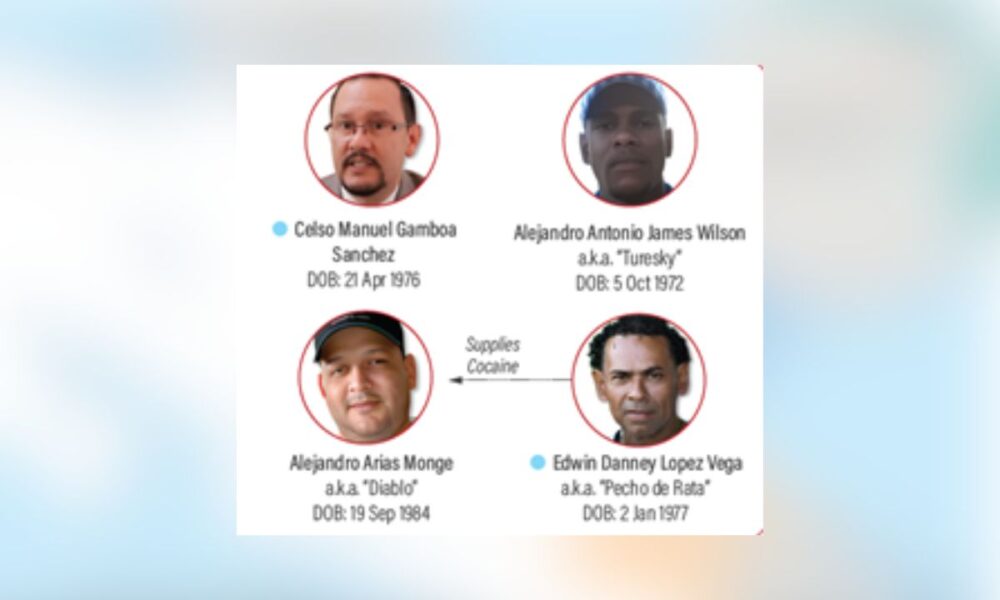The U.S. Treasury Department sanctioned four Costa Rican nationals and two businesses on Monday for drug trafficking and money laundering, pursuant to Executive Order 14059.
The move targets key players in cocaine shipments through Costa Rica into the United States. Costa Rica has become a crucial waypoint for criminal groups moving cocaine northward. According to the DEA, cocaine caused more than 22,000 overdose deaths in the 12 months ending in October 2024.
“Drug cartels are poisoning Americans and making our communities more dangerous by trafficking cocaine, often laced with fentanyl, into the United States,” said Under Secretary for Terrorism and Financial Intelligence John K. Hurley. “Treasury, in close coordination with U.S. law enforcement and our Costa Rican partners, will continue to use all available tools to disrupt narcotrafficking organizations that threaten the safety of Americans.”
The sanctions stem from a joint investigation by the DEA’s San José and Dallas offices and Costa Rica’s attorney general. Treasury noted that 2024 was Costa Rica’s second-most violent year on record, with 2025 on pace to match it.
The port city of Limón recorded the country’s highest homicide rate in 2024. Criminal groups battle for control of the Moín seaport, opened in 2019, to ship cocaine inside containers.
Two sanctioned individuals face extradition to the United States. Costa Rican police arrested Celso Manuel Gamboa Sanchez and Edwin Danney Lopez Vega on June 23, following a U.S. extradition request.
Gamboa, a former vice minister of public security, moved tens of millions in cocaine from Colombia through Costa Rica. He sold information about counternarcotics investigations to their targets and bribed officials to facilitate shipments.
The sanctions also target Bufete Celso Gamboa & Asociados, Gamboa’s law firm, and Limón Black Star FC, a second-division soccer club. Gamboa used both entities to launder drug money.
Alejandro Antonio James Wilson shipped cocaine to the United States and Europe through corrupt port officials. He worked closely with Gamboa to smuggle drugs through the Moín seaport.
Alejandro Arias Monge, Costa Rica’s most wanted fugitive, evaded capture using Gamboa’s government contacts. The State Department offers up to $500,000 for information leading to his arrest.
Lopez, known as “Pecho de Rata,” supplies drugs to Arias and launders money with Gamboa. He operates from Limón alongside the other traffickers.
The sanctions freeze all U.S. property belonging to the designated individuals and companies. Americans cannot conduct business with them, and foreign banks risk secondary sanctions for processing their transactions. Violations may trigger civil or criminal penalties under U.S. law.
Costa Rica’s president signed a constitutional reform in May 2025 allowing extradition of nationals for drug trafficking. The change enabled the arrests of Gamboa and Lopez.
Treasury previously sanctioned Gilbert Hernan de Los Angeles Bell Fernandez in November 2023. Bell played a major role in transforming Costa Rica into a narcotics hub.


